

|
|



|
|||
|
Stage equipment
|
Elevators
|
Compressed gases
|
Press
|
|
|
|||
| -- Back to more current news -- | |||
Madrid is preparing for the more than 200 activities of "The Night of the Theaters"This initiative will feature more than 200 activities in 118 spaces in the region, including theaters, halls and cultural institutions, as well as open-air scenic proposals in eight enclaves of the city. Tuesday, march 25, 2014 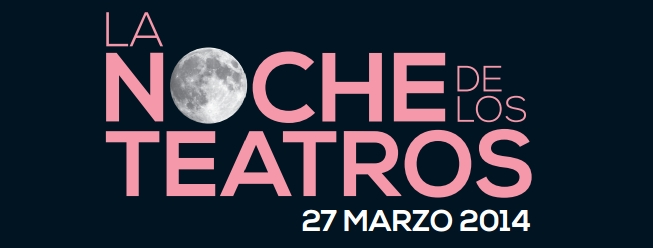
In this 7th edition of The Night of Madrid Theaters and visitors will be able to enjoy a wide program of performances and activities in 85 scenic spaces, in 25 cultural institutions and in eight open-air spaces. The offer includes a total of 97 performances, which will take place on stages in the capital Madrid and other municipalities in the region. In addition, the public will be able to access discounts of up to 50% on the price of tickets for that day. Among the 119 activities organized on the occasion of The Night of the Theaters, those that will be held in different theaters stand out, such as meetings between the actors and the public, concerts, exhibitions, talks and visits behind the scenes. During the evening, in the Teatros del Canal you will be able to attend a suggestive theatrical visit by the Madrid company Morboria. The Paco Rabal Cultural Center will also show the viewer the ins and outs of the world of entertainment and the Corral de Comedias de Alcalá de Henares will serve to make known to the public the evolution of the facilities in a historical scenic space. There will also be extraordinary activities in the Spanish Theater, in Matadero and in the Castle of Manzanares el Real. Even the Hospital Niño Jesús will participate with works aimed at the little admitted. And one more year, the celebration of "The Night of Max Estrella", at the Círculo de Bellas Artes, which already commemorates its sixteenth edition with a tribute to Valle Inclán, joins La Noche de los Tetros. The activities in the street will have a special role, the starting gun that will be at 5:00 p.m., in Fuencarral street, with the participation of five companies specialized in street theater and a parade in which children will be the protagonist. Source: madridout.es/ |
|||
Culture allocates 20 million euros to support stage and musical activities during 2014MADRID, March 7, 2014 The National Institute of Performing Arts and Music (INAEM) of the Ministry of Education, Culture and Sports will allocate a total of 19,940,840 euros to support scenic and musical activities during 2014. Of this total amount, 13,940,840 euros belong to aid for music, lyric, dance, theater and circus corresponding to the 2014 public call, according to the resolutions published this Friday in the Official State Gazette (BOE ), including the second term of the 2013/14 biennial agreements. The deadline for the presentation of projects is 25 calendar days from the day following the publication of the call in the BOE, therefore it ends on April 1. For its part, the PLATEA program - launched by the Secretary of State for Culture - has a budget for its first edition of 6 million euros destined to encourage the circulation of performing arts shows in municipal spaces. PLATEA, which will promote about 1,396 performances in 173 local entities throughout the Spanish geography, started last weekend and will continue until December 2014. Of the total amount of 13,940,840 euros allocated to aid to music, lyrics, dance, theater and circus by public call, a total of 6,005,917 euros correspond to music, lyrics and dance programs, which represents an increase of 16.6% compared to last year. Meanwhile, 7,936,923 euros will be allocated to programs for the dissemination, development, preservation and communication of theatrical and circus activities, which is 8.07% more than in 2013. In total, the Institute has managed to increase the allocation of these grants by 12%, that is, 1.44 million euros, according to the institution. All these grants have the objective of favoring new creation, artistic mobility and the state character of projects, in addition to maintaining and consolidating the technical improvements introduced in previous calls. It also seeks to reinforce transversal criteria, such as gender equality and the accessibility of people with disabilities to cultural activities. |
|||
The Lanzarote International Film Festival has more than 2,400 short films registered in its 2014 editionOn January 20, the Official Section was announced on the Festival website, which has seen the participation of international short filmmakers tripled 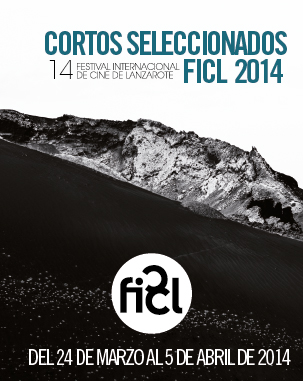
On November 30, the registration period for the XIV Lanzarote International Film Festival (FICL) ended, with participation figures that mark a before and after in the history of the Lanzarote contest: a total of 2,427 short films from 81 nationalities different will choose to be part of the Official Section. More than half of the audiovisual works received (1,400 short films) belong to the International Fiction Shorts category. Countries like Cameroon, Nepal or Turkey are premiered in this edition. Europe, led by France and Germany, is the continent with the largest presence. In this edition, the participation of international short filmmakers has tripled. The second most popular category, as is tradition, are the National Fiction Shorts, with 458 works (seven more than last year) followed by the 304 Documentary Shorts (186 more) and the Animation Shorts category - new in this fourteenth edition- which has received 266 pieces. Given the high participation this year, the organization has had to expand its Selection Committee to be able to carry out an effective viewing within the timeframe committed in the bases. The FICL announced the titles that make up its Official Section on January 20, 2014, both through its official website: www.festivaldecinedelanzarote.com, and through its social media profiles: www.facebook.com/festcinelanzarote ; and @festcinelanza, on Twitter. The list will be made up of a maximum of 120 short films, which will be screened from March 24 to April 5 at the Teatro Insular de Lanzarote, in the original version with subtitles in Spanish and English. FICL 2014 is an international event for short films and contemporary Spanish cinema. Based on the annual festival calendar, it is organized by the Department of Education and Culture of the Cabildo de Lanzarote, together with Fisme Producciones. Source: festivaldecinedelanzarote.com/ |
|||
Montoro announces a possible reduction in cultural VATThe Minister of Finance assures that the Government "is going step by step" in relation to the tax reform of culture 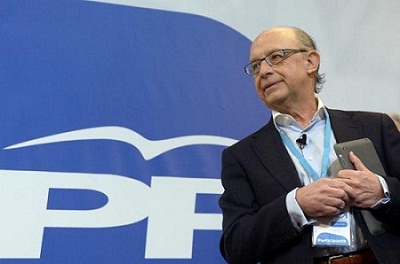
The Minister of Finance, Cristobal Montoro, is already working on a reduction of the cultural VAT, after the reduction to 10 percent of the tax for art transactions became effective. "We have already lowered that of works of art. We are working on the rest of the tax reform of culture, but they have to let us work. We will go step by step," he told the newspaper Expansión. The Government raised the VAT from 8 to 21 percent in September 2012. The Minister of Education, Culture and Sports, José Ignacio Wert, pointed out on January 25 that he anticipated that the reduction of VAT from 21 to 10 percent for the deliveries of art objects could be extended to the rest of the culture sector during the next few months. "This is a measure that tries to prevent the relocation of a significant sector of the art market and is the expression of the will of the Government in its tax reform to progressively meet the demands of the cultural sector in this matter," he said. Minister Wert will attend the Goya Awards gala next Sunday, where last year the VAT increase and its impact on the sector was one of the reproaches he had to hear. Source: elmundo.es |
|||
The Diputación de Teruel will allocate 80,000 euros to Aid for Cultural Activity in MunicipalitiesThe Diputación de Teruel has approved today, in its plenary session in January, several initiatives that help finance and stimulate cultural activity in the municipalities of the province. The aim, with these measures, is to contribute to the improvement of the quality of life in rural areas by supporting the holding of cultural events in our towns. A total of 80,000 euros will be earmarked for this purpose. On the other hand, the DPT has also agreed to convene a new edition of its San Jorge Painting and Narration Awards. 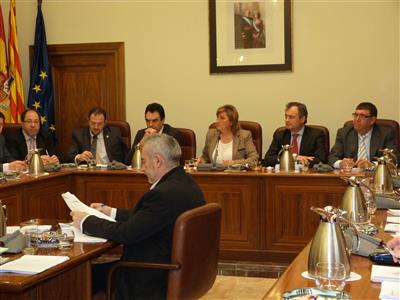
The Diputación de Teruel will continue, in 2014, betting on institutional collaboration and networking as a formula to promote cultural activity in the municipalities. The program called "Red Aragonesa de Espacios Escénicos" is part of this line, which this year will have a global budget of 536,000 euros and in which the DPT will participate with a contribution of 30,000 euros. This program aims to promote the use of public scenic spaces. It is about stimulating their role, both as cultural centers in their respective municipalities and also as references in the cultural life of our territory. In the province of Teruel, the municipalities of those nuclei with the largest population and that have theaters and / or scenic spaces tend to benefit from this aid. In 2013, the Diputación de Teruel allocated a total of 27,000 euros to this program and twenty theatrical shows, twelve music concerts and a dance show were subsidized. The municipalities of Teruel, Alcañiz and Andorra were the beneficiaries of this line of cultural work. On the other hand, the Diputación de Teruel has convened the Cultural Campaign of Music and Theater aimed at promoting the performances of Teruel groups in our province. This cultural offer, to which the DPT dedicates 50,000 euros, is complementary to the one jointly developed by the provincial councils and the Aragonese regions in the Performing and Musical Arts Circuit. The Music and Theater Cultural Campaign allows the different City Councils of the province to be offered the possibility of programming performances in their municipalities of folk groups, music bands, theater and other cultural leisure proposals promoted by artistic groups from Teruel. In 2013, 283 activities were carried out in 172 locations under this cultural revitalization program. Source: dpteruel.es |
|||
XXXI Malaga Theater Festival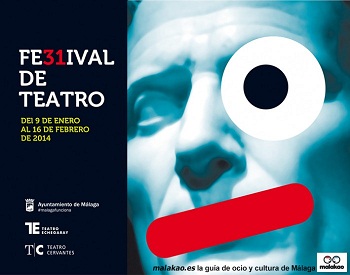
From January 9 to February 16, 2014 the XXXI edition of the Malaga Theater Festival is held in Malaga. For a little over a month, the Malaga capital becomes the largest stage in Spain, with a program with 75 performances of 27 productions in which we can find shows with the route and the reception of the public and critics of "Hécuba", " The children of Kennedy "," La anarquista "or the musical" Grease ", and actors of the stature of Concha Velasco, Echanove, Maribel Verdú, Emma Suárez, Ariadna Gil, Adriana Ozores, Magüi Mira or Mario Gas. This year the Festival also includes an extensive program of classical theater with texts by Shakespeare, Calderón, Lope de Vega and Eurípides, as well as a musical aspect with the aforementioned montage of "Grease" which is joined by "Ur" on the text of Calderón, "Barrio de la Paz", "Lucía la Maga" or "Broken Vaudeville". As a novelty, in this edition of the Malaga Theater Festival we will be able to see special performances in unique settings, such as the Wine Museum (Oh Vino will be seen 12 times) or the MIMMA (Interactive Museum of Malaga Music, 1 Hamlet performance).
The program of the Malaga Theater Festival 2014 is completed with a series of parallel activities such as lectures, workshops or dramatized readings. Source: malakao.es |
|||
INAEM renews the teatro.es portal and presents the new website ticketsinaem.esThe National Institute of Performing Arts and Music (INAEM) has just launched the renewed version of the teatro.es portal and the new informative and sales website of entredas ticketsinaem.es, within the line of actions carried out by the INAEM for its full incorporation into the 2.0 environment. 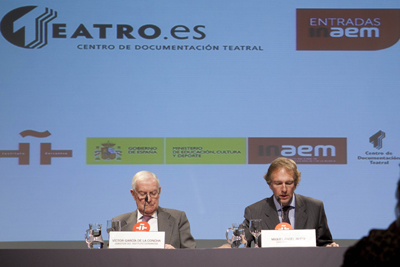
Teatro.es will make five databases available to Internet users, including the CDT's integrated catalog, with a million documents (including videos, photographs, cartoons, audios, hand programs and press clippings), while The new website ticketsinaem.es will become the main channel for information and ticket sales for the shows generated by the creation centers dependent on the INAEM. Teatro.es: a portal for theater in Spain With these two new tools, the Institute consolidates its program for the full incorporation of the Institute into the 2.0 environment, in line with what is established within the Strategic Plan of the Secretary of State for Culture. According to the general director of the INAEM, Miguel Ángel Recio, "the new portal teatro.es is one of the most ambitious projects in terms of theater on the internet that can be found in Europe, which will offer users (stage professionals, teachers , researchers, journalists ...) very diverse products and resources. Our goal is for teatro.es to become the reference site for Spanish theater on the internet". Regarding the launching of the new website entrancesinaem, Recio explains that this new tool "seeks to provide the commercial portal with much more complete and dynamic content and an attractive design to generate synergies between spectators, creation centers and their shows" . Teatro.es in data Among the novelties that the new CDT portal incorporates is the incorporation of five databases and new sections: 1. Integrated CDT catalog: with one million documents (more than 4,000 videos, 250,000 photographs, 15,000 cartoons, 600 audios, 7,000 hand-held programs and half a million press clippings relating data and documents). 2. Database of Premieres: about 40,000 shows premiered in Spain in the last 75 years that include: date and place, production, directors, set designers, actors, musicians, as well as documents of the shows ... 3. Database of professionals in the performing arts: with 17,500 references (with data on premieres, photographs, videos, reviews, interviews ...) 4. Guiarte: a renewed guide to the performing arts that, with a more agile and attractive design, will offer information on nearly 7,000 theaters, companies, companies, publishers, awards, schools ... 5. CDT Library: renewed catalog with about 20,000 volumes on theater and circus and 600 collections of magazines. Processing of inquiries, loan or reproduction of funds online. 6. Gallery of complete works: in video and audio format, in streaming. 7. Professional Club: a meeting place for professionals, where they can make their work and their theatrical career known. In addition, other sections are offered, expanded: 8. Electronic publications of the CDT: the Digital Scene Magazine, takes the pulse throughout the year to the Spanish theatrical reality; Don Galán focuses on theatrical research at the university level. 9. Other informative projects: Theater for you, a series aimed at high school students on the fundamental works of Spanish theater; Theater without barriers, which will give access to our recordings to people with hearing or vision difficulties; o Thematic channels - the channels on children's theater and theater reading and writing at school are now accessible - on specific aspects of theater teaching practice. Source: redescena.net |
|||
Why the need to install an elevator in neighboring communities?Thursday, November 14, 2013 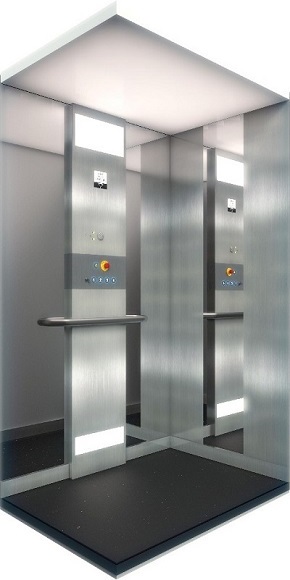
In the repair and maintenance of communities with old buildings, one of the works that generates the greatest impact on the quality of the neighbors is the installation of an elevator. The processes to complete the installation of an elevator in a block of flats usually begins with the proposal in the neighbors' meetings, from that moment the consultations of budgets and previous studies leave the matter in a corner of the memory of the community of neighbors and so It is only taken up in the subsequent meetings where advantages and disadvantages are assessed to accommodate the installation of the elevator. Disadvantages of installing an elevator Some of the questions and doubts that are generated in the communities when installing an elevator is the cost of the installation, the time and work of the installation, which raises the true need for the elevator. Industrias Maquiescenic has a wide range of lifts with different budgets, in addition to studying each case carefully to offer the different options that allow the product and the work to be made as cheap as possible without losing its quality. It is often believed that a cheap elevator implies less quality of materials or in operation, nothing is further from the truth in our elevators. Another point to take into account is the space that the building has to locate the elevator, this point is not a problem since our products are available in different sizes adapting to the available space. 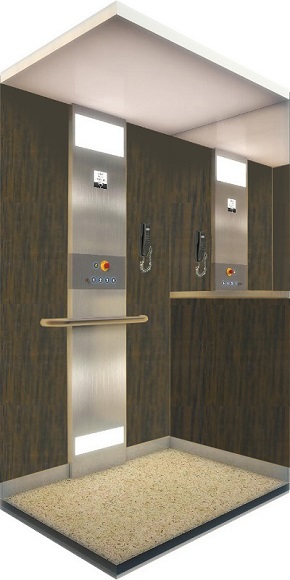
Advantages of having an elevator in the building In addition to the tax advantages or subsidies that support the installation of elevators as an action for the rehabilitation of homes and accessibility to old buildings, there are several other and positive ones:
Elevator maintenance This is an issue that generates great controversy among neighbors as they do not know the fees and the cost of these that they must hire. Our elevators in this aspect are really economical since they do not need mandatory monthly maintenance. According to Royal Decree 88/2013 our preventive review is more reduced than usual, becoming every four months and much more affordable. |
|||
The myths and superstitions of the theater worldWednesday, October 23, 2013 
Have we all ever wondered where the expressions that actors use like "a lot of shit" come from? Or superstitions like why no actor wears yellow on stage? Wishing good luck is believed to bring bad luck in performances. That is why other sayings such as "a lot of shit" or "break a leg" in Spanish "break a leg" are used to wish each other luck. "Much shit" is one of the best known and oldest theatrical expressions. It dates back to the days when the usual means of transport was the horse. The more horse droppings at the entrance to the theater, the more crowds. So having a lot of shit meant enjoying a packed theater during the performance. The Spanishized "break a leg" (break a leg) does not have its origin so clear. There are various popular theories. One hypothesis is based on the interpretation of the 18th century actor David Garrick. The actor was so involved in Shakespeare's Richard III that he continued to act unaware that his leg was broken. Another hypothesis says that it was born when the actors genuflected at the end to thank the audience for the applause, the more successful the more times they had to salute. A synonym for catastrophe is that they see you whistling on a stage, the reason is that the theater funds are mobile and use ballast, lead and structures to be exchanged. Those in charge of moving and locating these funds communicate by whistling during the rehearsals and the previous one, so if it was whistled it could make you drop a sandbag on your head. The superstition of never wearing yellow is perhaps the most popular internationally. The legend was born as a result of a representation of Molière of "The imaginary patient". During this performance he had a strong attack of coughing and convulsions due to his tuberculosis. They had to take him home immediately. A few hours later he died. Since then the color yellow and bad luck go hand in hand. Therefore it is said that the brave who dares to wear this color will receive reproaches from the press and colleagues. Macbeth and her representation is undoubtedly another of the great myths of the theatrical world. People on the scene avoid saying the word "Macbeth" in the theater, and refer to it as "the Scottish play." In fact, there is even a ritual in case someone pronounces it to clear the curse: leave the theater, spit on the floor, roll over three times and cry out to be able to enter the room again. About the origin, it is also not clear. Some people blame Shakespeare for including authentic spells and curses in the text. Others say that the real witches did not like the treatment received in the play and cursed it. And the most practical use another argument: there is so much violence and weapons in it that it is not difficult for accidents to arise. The mal fario began at the very premiere of the play, in 1606, when the actor who played Lady Macbeth (women were not allowed to act in the Elizabethan theater) suddenly fell ill and died between boxes. Mishaps throughout history have involved actors like Laurence Olivier or Charlton Heston. 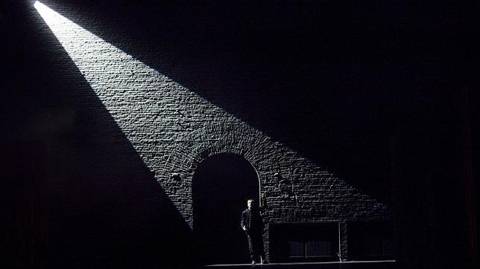
If you have thought about sending flowers to the dressing room of an actor or an actress, something that they appreciate very much, do not think about including carnations in the bouquet. This superstition apparently comes from the nineteenth century. Back then, theaters would hire performers seasonally and their way of communicating the renewal of the contract to an actress was to send him roses. If, on the contrary, they sent her carnations, it was the businessman's subtle way of telling her that she was fired. Why is there never a completely dark stage in a performance? The reason is ghosts, there are countless stories and legends about ghosts in this world, the most famous of which is the one collected in the novel "The Phantom of the Opera" by Gastón Lerroux. In other words, to scare off ghosts, a light must always remain on on stage or between boxes. Do you know any other superstition or curiosity from the world of theater? |
|||
RETOM - Industrias Maquiescenic S. L.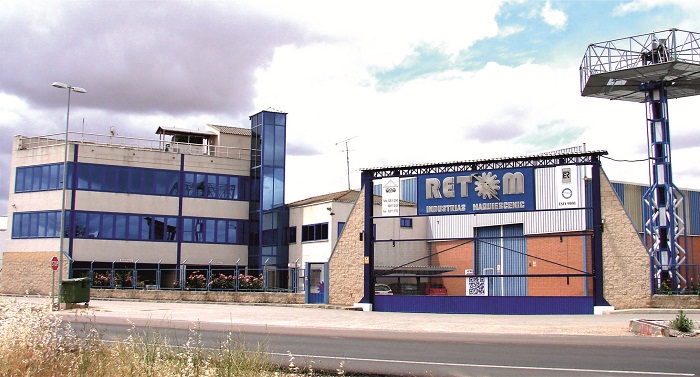
About us? The professional experience of Industrias Maquiescenic, S.L. part of 1983 with the formation of the first labor initiative: "RETOM" workshops; dedicated initially to the repair and manufacture of machinery. This initial activity was evolving and adapting to the needs of the market, reaching a perfect specialization in the field of design, manufacture and assembly of stage equipment. The most important growth of the company began in 1990, the year in which the current facilities with more than 20,000 square meters of surface were inaugurated, 5000 of them built where the administration, engineering, quality, warehouse management and production departments are located. In 1993 the Sociedad Limitada Industrias Maquiescenic was created, retaining RETOM as a trade name and registered trademark. These specialties are carried out with the work of a large qualified and sufficiently prepared human team since the basis of the development of Industrias Maquiescenic, is found in the continuous training of its personnel. 90% of our staff is permanent staff while all the technicians have been trained in-house and have become experts in the work that each one performs. Currently the staff is made up of the following departments:
Company services 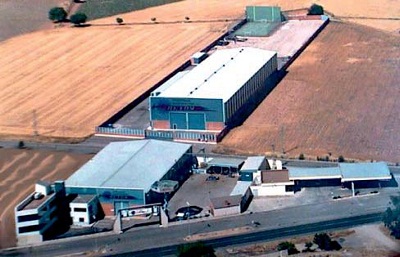
MAQUIESCENIC offers preferential treatment to the client, this offer is based on our ability to design and manufacture according to the needs of our clients. Differentiation and specialization are the keys to success. Only a work system based on technology, our own utility models and continuous research and development efforts allow us to achieve these objectives. The activity developed by Industrias Maquiescenic can be summarized in the following points:
|
|||
The state PLATEA program will support the circulation of performing arts shows in spaces of local entitiesTuesday, October 8, 2013 The circuit of the Secretary of State for Culture is endowed with 6 million euros
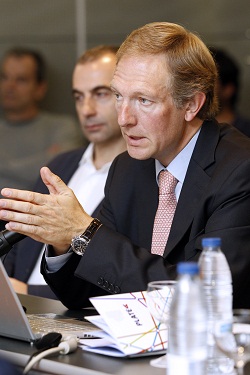
The general director of the National Institute of Performing Arts and Music (INAEM), Miguel Ángel Recio Crespo, has released the details of the PLATEA program, announced this morning by the Secretary of State for Culture, José María Lassalle, in his appearance on the budgets of his department for 2014 in Congress. PLATEA is the state program that, through this Institute, aims to reactivate the circulation of performing arts shows in spaces of local entities. The circuit, which has an endowment for its first edition of 6 million euros, is estimated to benefit at least 200 companies and promote around 1,200 performances, which will be held between the months of March and December 2014, in about 150 municipal theaters. Boost to the sector During his speech, the Director General of INAEM highlighted that the PLATEA program is the most important action to promote the performing arts carried out so far by the Ministry of Education, Culture and Sports: "Apart from the important economic endowment with the What counts, the purpose of PLATEA is to reactivate the programming of municipal theaters through the joint hiring of performing arts companies by INAEM and local entities. We want the performing arts money to go to the performing arts." Minimize the risk The General Director has detailed that "through PLATEA, and to minimize the risks of both parties, the INAEM will assume the difference between the income per box office and the cache budgeted by the company." In this way - Recio added - "we want to face the current problem faced by city councils to program, given the reduction of their budgets, and that of companies, which see too much risk in accepting the box office as a form of contracting by the uncertainty posed by collections in the current economic context ”. Reactivate local programming With this formula, he pointed out, "we seek to revive and enrich the cultural programming of the local stage facilities built or rehabilitated in recent decades, and to promote the self-sustained management of locally owned public theaters, thus reinforcing the professionalization and specialization of managers. cultural and municipal programmers ". According to the head of INAEM, the PLATEA program will contribute to expanding the diverse and quality artistic offer throughout the State and to the promotion of cultural communication between the Autonomous Communities since it will provide artists and companies with access to a more circuit of shows. beyond its Community and, at the same time, it will serve to stimulate the performing arts sector as a whole: spaces, producers, artists, companies, technicians or promoters. Finally, Recio stressed that this project meets three basic objectives of this Secretary of State, such as "facilitating access to culture, creating jobs and promoting Spanish creation." Participation conditions Adherence to the program: Until December 31, 2013, each local entity may adhere to PLATEA with a single scenic space of local public ownership, whose management may be public or private. Show catalog: In order to guarantee both the quality and the diversity of the proposals, the INAEM will prepare and offer to the adhered local entities a catalog of shows by Spanish companies, selected by an advisory committee made up of independent experts of recognized prestige and representatives of the local entities and the Autonomous Communities. The catalog will consist of artistic and technical information of the shows, as well as the budget and cache at market price. In the catalog there will be a single show for each company or production company. Presentation of programming projects: Until January 31, 2014, each adhered local entity may send its programming proposal to PLATEA. The programming project will cover the months of March to December 2014 and must meet the following conditions: it will consist of a minimum of 4 and a maximum of 15 performances of performing arts (theater, dance and circus) in the attached scenic space, of groups and companies from at least three Autonomous Communities or Autonomous Cities other than their own. At least 80% of the shows included in the proposed program must belong to the catalog approved by INAEM. Evaluation and approval of programming projects: The PLATEA advisory committee will assess the quality, diversity, suitability and budget of the programming project. Likewise, the INAEM will verify that the same show does not have more than twelve functions in the program as a whole, none of which may have received a subsidy from the INAEM or any other Public Administration through circuits or tour aid. The programming proposal will be evaluated according to criteria such as artistic quality and diversity of genres (with special attention to dance, the performing arts for children and young people, classical theater and the circus); the incorporation of new scenic languages; Spanish authorship and the incorporation of pedagogical, accessibility and social inclusion measures and activities. A minimum average price of tickets will also be guaranteed, which, depending on the artistic genre in question, will range between 6 and 12 euros (VAT included). Signature and conditions of the contracts: PLATEA will be implemented through artistic performance contracts: one between the local entity and the company and the other between it and the INAEM. For more information you can consult the web: www.mcu.es |
|||
The Culture budget will increase by 17.1% and will specifically support the theaterFriday, September 27, 2013 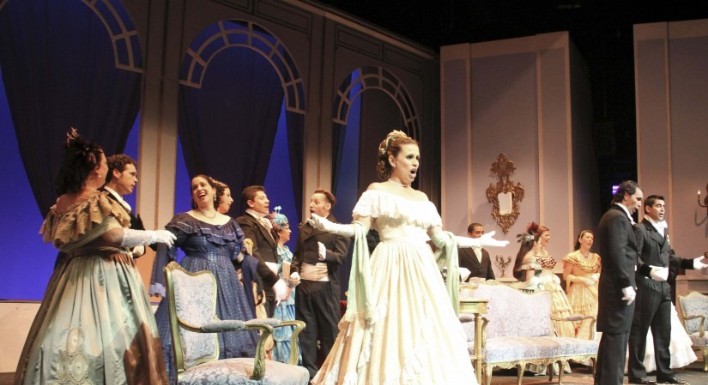
The item for Culture in the General State Budgets (PGE) for 2014 will rise by 81 million euros (17.1%) compared to last year, as the Government has advanced this Friday after the Council of Ministers. The Minister of Finance, Cristóbal Montoro, pointed out at a press conference that this increase is due to the commitment "specifically" to theater as an area within culture (the total amount is included together with another for sports federations). "It is a branch of culture that goes specifically to the theater. What is reinforced in terms of the budget will be better explained by the Minister of Education, Culture and Sports, José Ignacio Wert, as this is a general presentation," Montoro indicated. The Government allocated a total of 721.21 million euros to Culture in the 2013 PGE, 19.6% less than in the previous year. This, together with the increase in VAT for cultural activities to 21%, sparked protests from the entire sector. Source: 20minutos.es |
|||
Low maintenance lifts, lifts, stair lifts and RETOM car mounts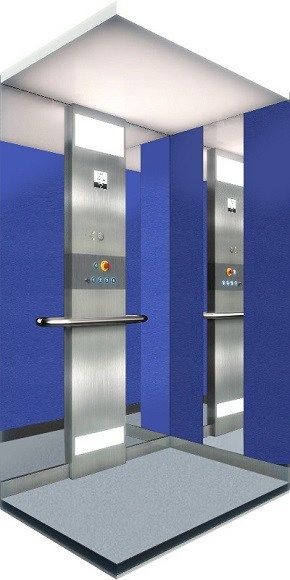
One of the divisions of Industrias Maquiescenic is dedicated to the installation and maintenance of lifts for people such as stairlifts, stair lifts, short-distance lifts, for unevenness, etc. We are also specialized in industrial lifting platforms and car mounts; The latter can be adapted to small spaces, and can be, in addition to being a car lift, a rotating platform. Among our range of elevators, the reduced maintenance elevators stand out, this being quarterly, these elevators are available in a wide variety of finishes and accessories; all at an affordable price. Our staff is adequately trained technically and professionally to provide both installation and maintenance services for the equipment, with extensive experience in repair, installation and maintenance of all types of elevators. 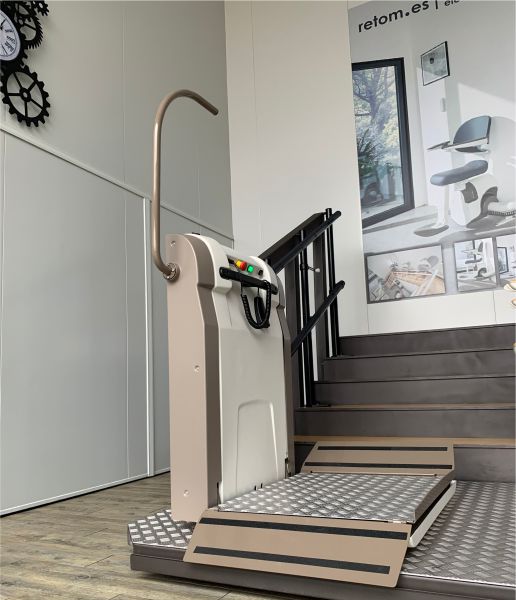
Industrias Maquiescenic deals directly with the client ensuring a good service and a better price. Our products are suitable for the disabled and we can adapt to all types of gaps giving the best solution for the client in any structural problem that the home or enclosure may have. We are fully adapted to the regulations required by current law both in security measures and guarantees and other terms covered by the law. Through our website the client can see our range of lifts and their finishes, as well as the rest of the range of lifts for people, industrial and car mounts. Being able to make an indicative budget for the elevators or contact us and communicate any doubts that may be generated. See the range of RETOM lifts |
|||
Manuel Rodrigo visits the company RETOM / Industrias MaquiescenicA leading family business in the installation of stage equipment that is committed to the training and specialization of its workers as an added value 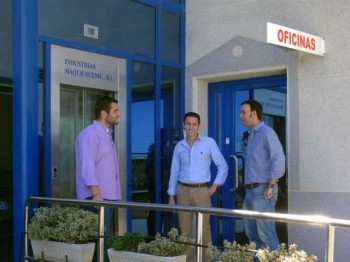
Recently, the councilors for Economic Promotion and Urbanism, Manuel Rodrigo and Javier Navarro, have visited the Tomellosera Industrias Maquiescenic company, known as RETOM, a leader in the design, installation and manufacture of both scenic equipment, elevators and industrial gas machinery. For this reason, Rodrigo congratulated those responsible for Maquiescenic, which has become a benchmark nationwide and has known how to adapt to the situation by betting on the training and specialization of each of its workers. In addition, this company has managed to position itself at the head of a sector as specialized as the assembly of stage equipment where most of the technologies used are of its own production. For his part, the head of the company, Oscar López revealed during the visit his new bet, a line of elevators and equipment for people with reduced mobility, which also addresses the elimination of architectural barriers. A more domestic, personalized and tailor-made line. They also work for the assembly and installation of stage equipment of all kinds, oriented to theaters, congress centers, exhibitions or museums and deal with industrial platforms, large loads and tonnages. The company started as RETOM and repairs were made to metal structures. Later he turned to the business of stage equipment, where Industrias Maquiescenic was created and later launched into the production of maintenance equipment for industrial gas cylinders. Navarro took advantage of the visit to congratulate the company for the installation of the acoustic shell in the Tomelloso Municipal Theater, since according to him, "the work was very fast, fine and the result very satisfactory." The company has about 20 employees and their work is largely carried out in Spain, although they have also expanded to other countries such as Portugal, Mexico, Guatemala or Argentina. Among his major projects are the Palacio de Congresos de Ávila and the Pedro Barrié de la Maza Foundation in Vigo. They are currently working on projects in Madrid and Granada and have some 20,000 meters of facilities that allow them to manufacture and assemble provisionally. Finally, the head of the company has shown his concern about the labor intrusion that they are suffering in these times. He has also highlighted the importance of maintaining these equipments and that in many cases it is not done. |
|||
Equipment of the Pedro Barrié de la Maza Foundation HeadquartersINDUSTRIAS MAQUIESCENIC S.L. equips the Pedro Barrié de la Maza Foundation Headquarters 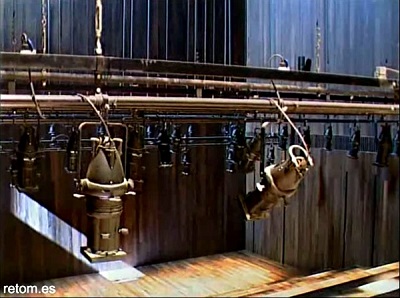
The headquarters of the Pedro Barrié de la Maza Foundation in Vigo is a large-scale project for which INDUSTRIAS MAQUIESCENIC, S.L. has put all its resources into practice in order to achieve an optimal result. Based on the congratulations received, we can affirm that the objective has been reached and exceeded, since additional functionalities have been added that exceed the initial specifications and that provide a greater degree of automation to the installed systems. Our works in the aforementioned headquarters reach the two main rooms, a multipurpose room and an assembly hall. In the first, ten platforms with a 9 "Spiralift-based lifting system have been installed with a static load capacity of 750 kg / m². These platforms allow the room to be configured in infinite positions that are fully configurable by the user. They have automatic steps of pneumatic actuation and synchronized with the operation of the system, which positions them according to the chosen configuration. In this same room, 16 RETOM model AF-350 motorized cuts have been installed, with a nominal capacity of 350 kg intended for the suspension of eight exhibition panels and eight electrified bars. The electrified bars have eight independent circuits each, being fed by spring reels fixed to the floor of the room. 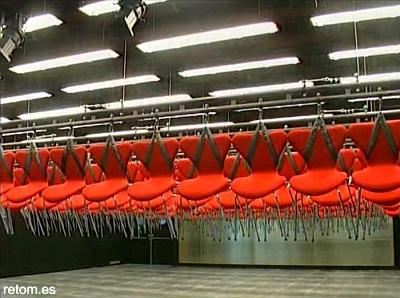
From these bars are suspended 64 zoom projectors with an opening angle of 23º to 50º and a power of 600 W, with their corresponding fixing claws and safety cables. For the regulation of these projectors, three digital wall dimmers were installed with 24x2.5 kW regulation channels each. The aforementioned power units communicate using the digital DMX-512 protocol with a 125-channel regulation table. With the installation carried out we have total and simultaneous control over all the available projectors. A portable console was also supplied for remote control of the entire spectacular lighting installation. In the assembly hall, eleven RETOM model AF-1000 motorized cuts were installed for suspension of chairs, in such a way that the placement of the same for use or storage is done in a matter of seconds. Two motorized cuttings with a capacity of 350 kg were also installed to suspend electrified bars where 16 projectors with similar characteristics to those mentioned above, but with an angle of 15 / 32º, are suspended. 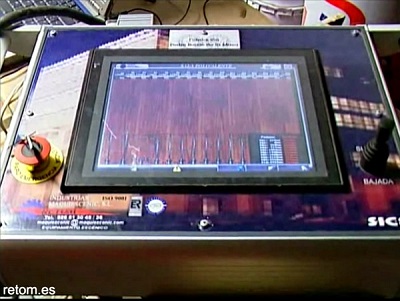
To regulate these, two 6x2.2 kW dimmers were installed each, connected via DMX-512 protocol to the central control console. In the auditorium there is a skylight-type hatch to vary the acoustics of the room. For this, a motor unit with a capacity of 2,500 kg was designed and manufactured to automate its movement. System control is done from the main console. All machinery has an absolute encoder to control its positioning. The building has an ethernet network for the communication of all the elements that make up the automation system, having connections for the main control in the different control rooms available in the building. The main control is portable to facilitate the work of technical personnel. It consists of a color touch screen, a joystick and an emergency button that cuts off any system activity. All the elements that make up the equipment are graphically reflected on the touch screen, from the platforms and motorized cuts of the multipurpose room to the motorized cuts and the gate system of the assembly hall. 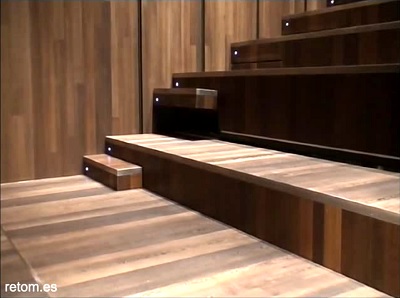
This control allows the individual handling of all the equipment or in a grouped way. Scenes can be programmed at the user's will, apart from having the most usual pre-programmed ones. The control informs of the position (height in meters) where each element is located, we can also mobilize any of them indicating the desired height to the program. The user is informed of any anomaly that occurs, identifying the place where it occurred and the cause that originated it. INDUSTRIAS MAQUIESCENIC, S.L. and specifically its engineering department has carried out all the technical development of the equipment, from the structural conception of the platforms, through the design of the motorized cuts, the gate system, to the development of the software that allows precise and safe control of the set. Likewise, the production department has manufactured under a strict quality system, certified by AENOR, according to UNE EN ISO 9001: 2000, all the components of the machinery and their subsequent commissioning. This way of working ensures that the final quality of the work carried out by INDUSTRIAS MAQUIESCENIC, S.L. is very high and the final result conforms to what is expected by all the people involved in the work. |
|||
Culture allocates 320,000 euros in aid for privately managed scenic spacesThursday, August 8, 2013 The Official Gazette of Extremadura (DOE) publishes the decree establishing the regulatory bases and the call for granting aid for the operation of privately managed scenic spaces in 2013, endowed with an amount of 320,000 euros. The Ministry of Education and Culture thus consolidates its "commitment" to the performing arts as "a strategic sector not only from the point of view of cultural contribution, but also from the business, pedagogical and economic point of view", as stated the regional government in a press release. For this reason, it wants to promote its development through subsidies for the programming, management and additional activities of privately managed rooms, as this sector can "provide new spaces for experimentation, innovation and the development of the spirit of enterprise". Natural and legal persons that have the nature of private companies in the performing arts or music sector, established in any Member State of the EEA, as well as the Member States of the EU, whose registered office, branch or permanent office is registered in Extremadura since at least one year before the date of publication of the call. In addition, they will have to meet, among others, the requirements of having a scenic space that has a capacity equal to or less than 350 seats. In the event that the space has several rooms, each and every one of them must meet this requirement. Likewise, the stage space will have a minimum available of 48 square meters in plan and 4 meters in height, as well as the minimum necessary equipment. The beneficiaries must also have a detailed plan of activities and stable programming of the scenic space for which the aid request is made, covering the year foreseen in the call and the next. Eligible expenses will be the personnel expenses of the room, the exhibition expenses, the technical and rental expenses, the advertising or expenses originated by the companies. The projects that are the object of aid must start from January 1 of the year corresponding to the call, and end before November 1 of the following year. The maximum amount of the aid will not exceed 100,000 euros, nor 60 percent of the amount of the budget for programming and management of additional activities approved. The deadline for submitting applications is twenty calendar days, counted from the day following the publication of this Decree in the DOE. Source: elperiodicoextremadura.com |
|||
| -- Back to more current news -- | |||
|
© Industrias Maquiescenic S.L.
Ctra. Alcázar de San Juan, Km 0,6
Phone:(+34) 926 513 045
E-mail:
|

|